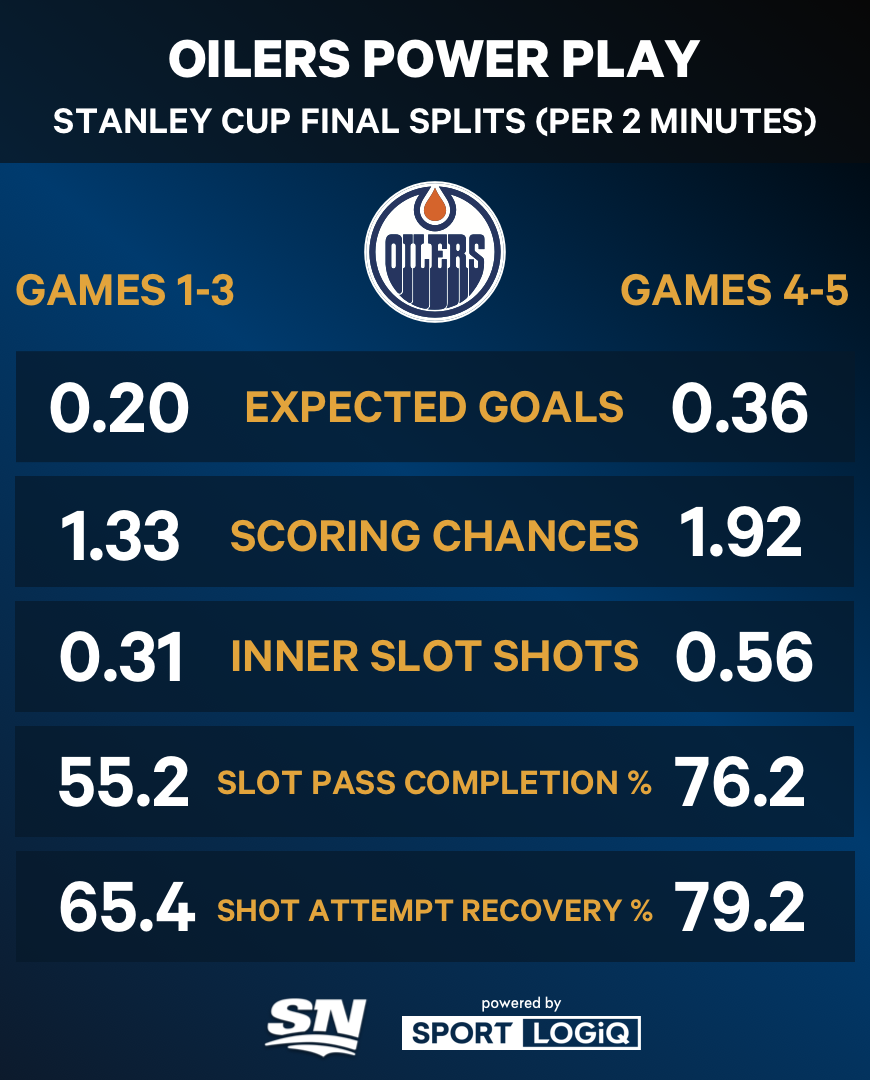
On the morning of Game 3 of the Stanley Cup Final, Connor McDavid fielded multiple questions about the Edmonton Oilers’ power play, which had gone 0-for-7 through two games against the Florida Panthers.
“The power play has been together for a long time, and we’ve been great at what we do,” McDavid told reporters. “We usually solve penalty kills, and I would expect us to figure this one out, too.”
He was right. The Oilers have scored three power-play goals in their two wins to extend the once-lopsided series to a sixth game. (Edmonton did something similar in the previous round, starting 0-for-6 on the power play against the Dallas Stars before scoring four goals with the man advantage over the final two games.)
Two things stand out when comparing the Oilers’ power play performance in Games 4 and 5 to their 0-for-10 start to the series. They have been much more successful at getting the puck to high-danger scoring areas, completing 16 of 21 passes to the slot over the past two games. That includes six passes that have led to one-timer shot attempts. Through the first three games, Edmonton completed 16 of 29 slot passes, two of which generated one-timers.
The Oilers have also been better at sustaining pressure in the offensive zone. They retrieved 79.2 per cent of their off-target power play shot attempts in Games 4 and 5 — up from 65.4 per cent in Games 1-3.
As McDavid said, the Oilers’ power play has an aura of inevitability, especially in the post-season, where it has scored on 36 per cent of its opportunities since last year. (The penalty kill, which has outscored the Panthers’ power play 2-1 in the Stanley Cup Final, also deserves some love.)
The Panthers’ penalty kill did a commendable job of keeping the Oilers’ big guns off the board for as long as it did. But Edmonton has its swagger back on the power play, which could spell trouble for Florida.
“I think what makes our power play special is each guy has a different kind of skill set,” Oilers coach Kris Knoblauch told reporters Wednesday. “You’ve got (Zach) Hyman at the net-front. (Ryan) Nugent-Hopkins is a great facilitator. (Evan Bouchard) has an outstanding shot from the point. Leon (Draisaitl) can shoot and is a tremendous passer. (McDavid) kind of plays rogue all over the ice, seeing plays and setting everything up.”
All stats via Sportlogiq